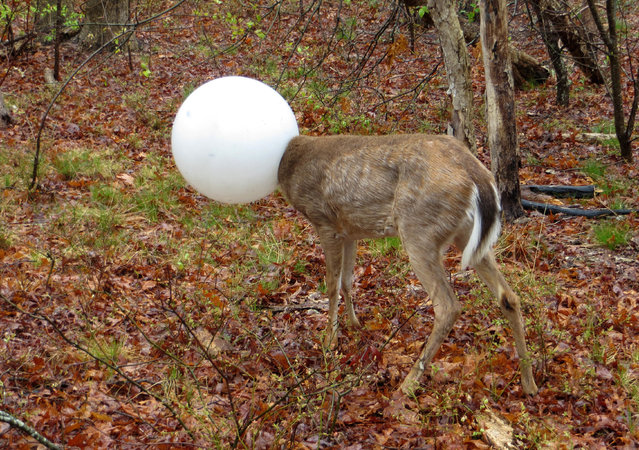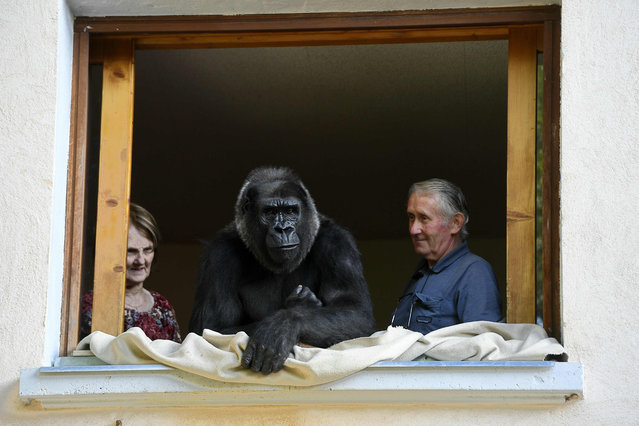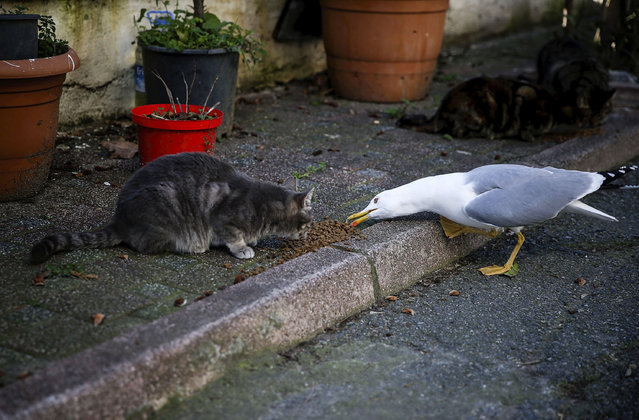
In this May 3, 2016 photo provided by the New York State Department of Environmental Conservation, a deer with its head caught in the globe from a lighting fixture over its head stands in the woods in Centereach, N.Y. The deer was able to extricate itself with the help of Environmental Conservation Officer, Jeff Hull. Hull wrestled with the deer for a while and the globe shook free in the process. (Photo by New York State Department of Environmental Conservation via AP Photo)
08 May 2016 10:46:00,post received
0 comments







